Hit hard by the pandemic, the handful of women auto drivers in the city open up for the first time about their everyday woes

Susheela Prajapati started driving an auto after her husband got Covid last year. Pic/Rajesh Gupta
After her husband contracted Covid last year, Susheela Prajapati learnt to drive his auto to support their four children and her mother-in-law. She soon found that negotiating Mumbai’s bylanes and traffic was just one part of the job. The tougher challenge was facing harassment by male auto drivers and unruly passengers. Susheela’s story is endemic across the suburbs where hundreds of women earn a living by driving autos, draped in pink.
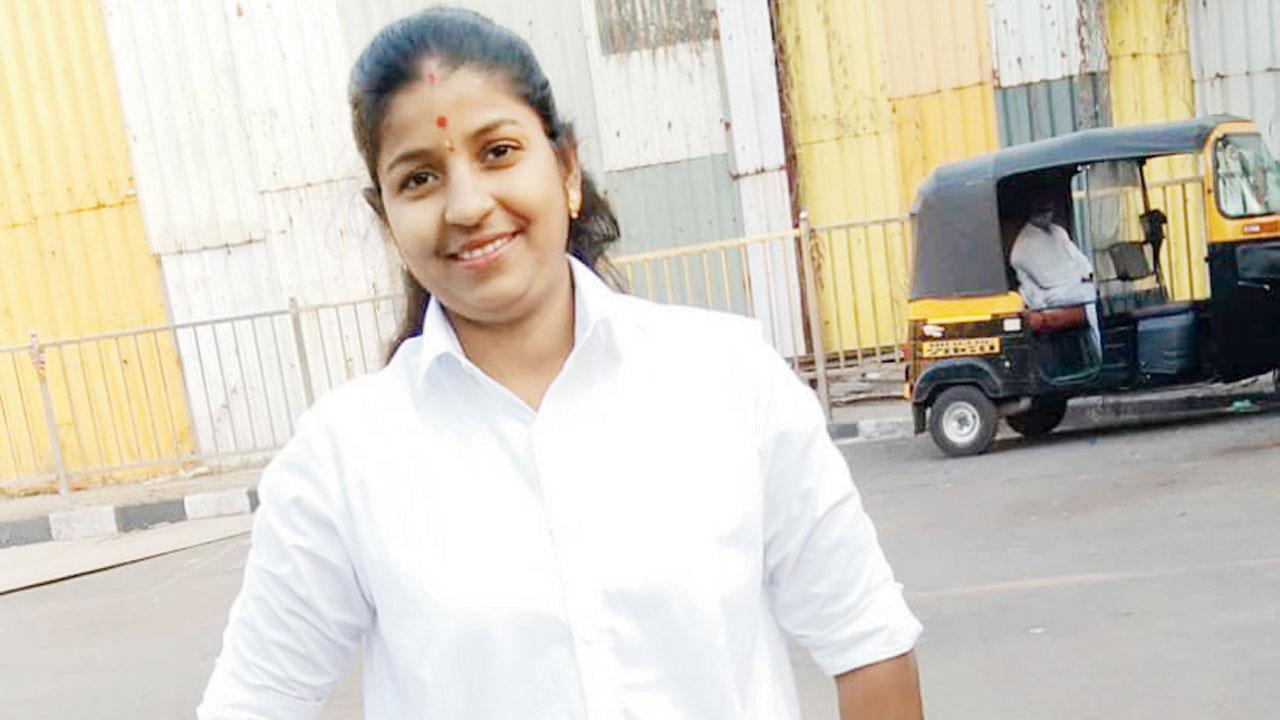
Namrata Pandit’s husband works as a ward boy
Over the years, pink autos have become a common sight. Mumbai suburbs where autos ply have around 1,000 permits issued to women, though not all of them are in use. mid-day spoke to a handful of these gutsy women who continue to do their work with their heads held high despite daily insults and abuses. Many times their complaints to cops go unnoticed, they said.
Susheela Prajapati, 37
The Ghatkopar resident became an auto driver out of compulsion. “My husband contracted Covid and we had no income. I have four kids and a mother-in-law to look after. But when I started working, I came across bizarre behaviour of male auto drivers,” Susheela, who leaves home at 8 am.
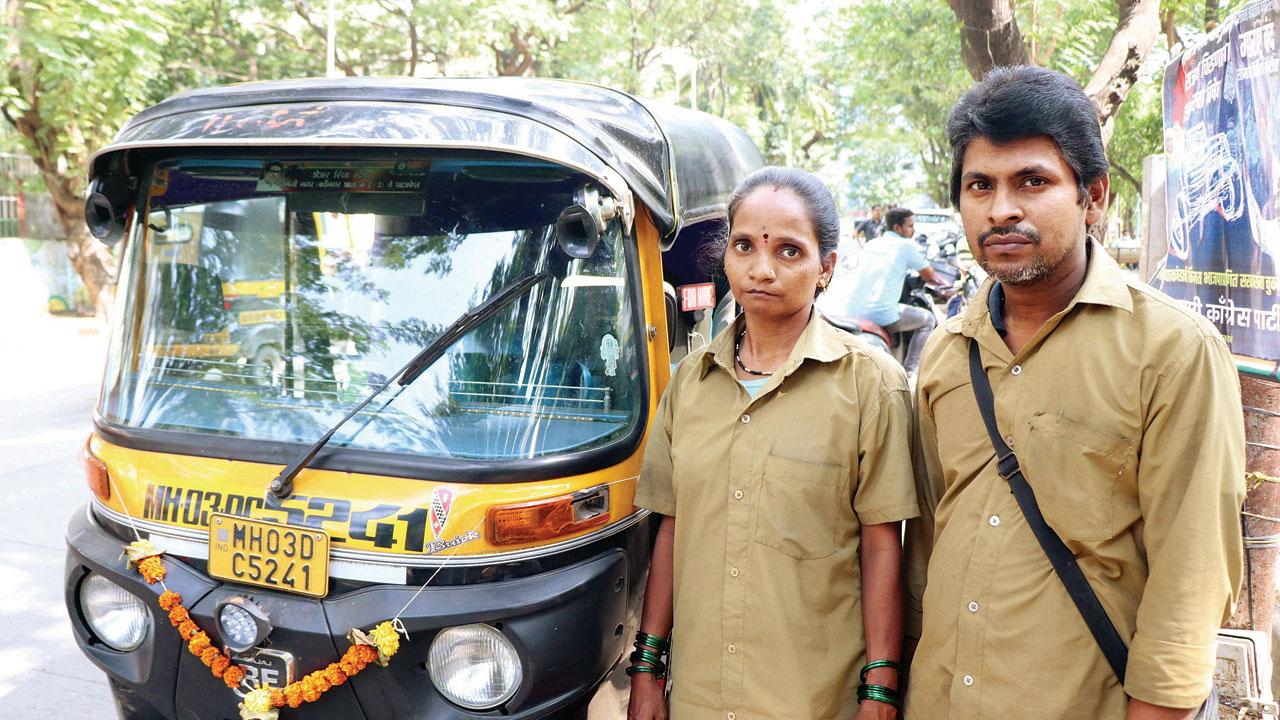
Susheela Prajapati with her husband. Pic/Rajesh Gupta
Susheela said the male-dominated auto stands are forbidden for rickshawallis like her. “They [male drivers] ask membership fees from me. I can’t afford R20,000-30,000, that too for just one stand. So I pick up passengers on the go. When they found out I was trying different ways to do business, they started abusing me. They cast aspersions on my character in front of my husband,” she said.
After facing harassment for more than 6 months, she went to the Ghatkopar police station and filed a non-cognisable offence complaint against a few auto drivers. “Things improved for a couple of days as cops came to the stand, but everything was back to square one. Even today no woman can go to some stands as they are the monopoly of men. I don’t know when things will change,” she added.
Sharmila Mhaparle, 34
“Many times, people wave to stop the auto but when they see a woman driver they simply refuse to board. In fact, many women also make fun of us,” said Sharmila Mhaparle, who lives in Pratiksha Nagar, Sion, with her husband, a driver, and their 13-year-old son.
She said she took up auto driving to support her family. “It’s an unwritten rule that women drivers are not allowed in the queue at auto stands. Even if I follow the queue, the male drivers jump the line blocking my turn,” said Sharmila.
Passenger behaviour is loathsome at times. “We understand the taunts and meaning of giggling, but I don’t pay attention to it. My aim is to get some money to support my family, these things don’t bother me anymore,” said Sharmila, who wakes up at 5 am, makes breakfast and lunch for the family and leaves at 8 am. She returns after spending 8-10 hours on the road. “We don’t expect any special treatment from male drivers or passengers, we just want them to treat us as humans.”
Sadhna Yadav, 33
A resident of Titwala, Sadhna Yadav travels 40 km daily to reach Mulund where she parks her auto. She ferries passengers for more than 10 hours. “As I live far, I have to make sure I get passengers around the eastern suburb so that I don’t have to spend more while returning empty. I prefer to ply at Mulund, Vikhroli and Ghatkopar but it’s not an easy task,” said Sadhna.
Like Susheela and Sharmeela, Sadhna also wonders why male drivers their female peers. “It’s been 2 years I am driving an auto but I fail to understand why there is so much contempt they have for us. We [women auto drivers] are also earning for our families like them.”
Sadhna lives with her husband, two daughters and a son. “My husband runs the auto at night and I take over in the morning. Many times, we have an altercation with cops over parking or while waiting for passengers. While most cops behave like brothers, some use foul language,” she said.
Alka Jadhav, 33
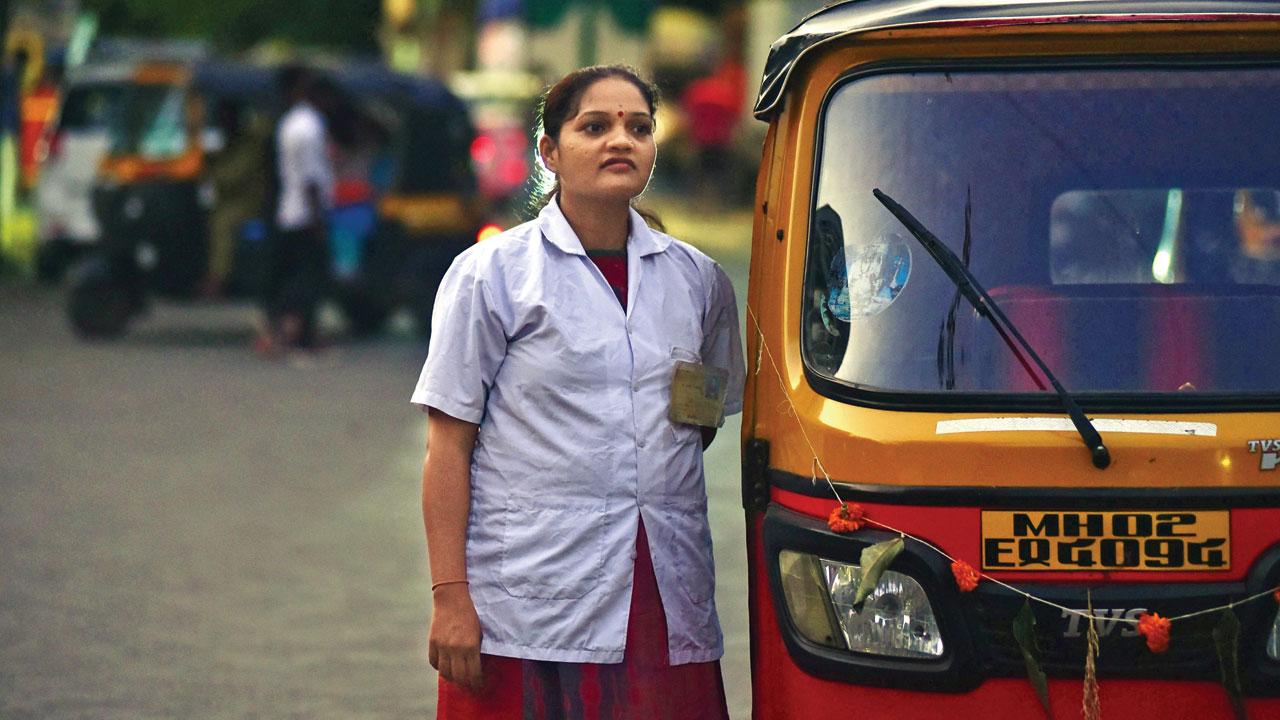
Alka from Kherwadi starts at 9 am, plying in and around Bandra. “I start my day from Guru Nanak Hospital auto stand. Most of the time there is no harassment as such for me, but many women drivers come to this stand to feel safe,” she said.
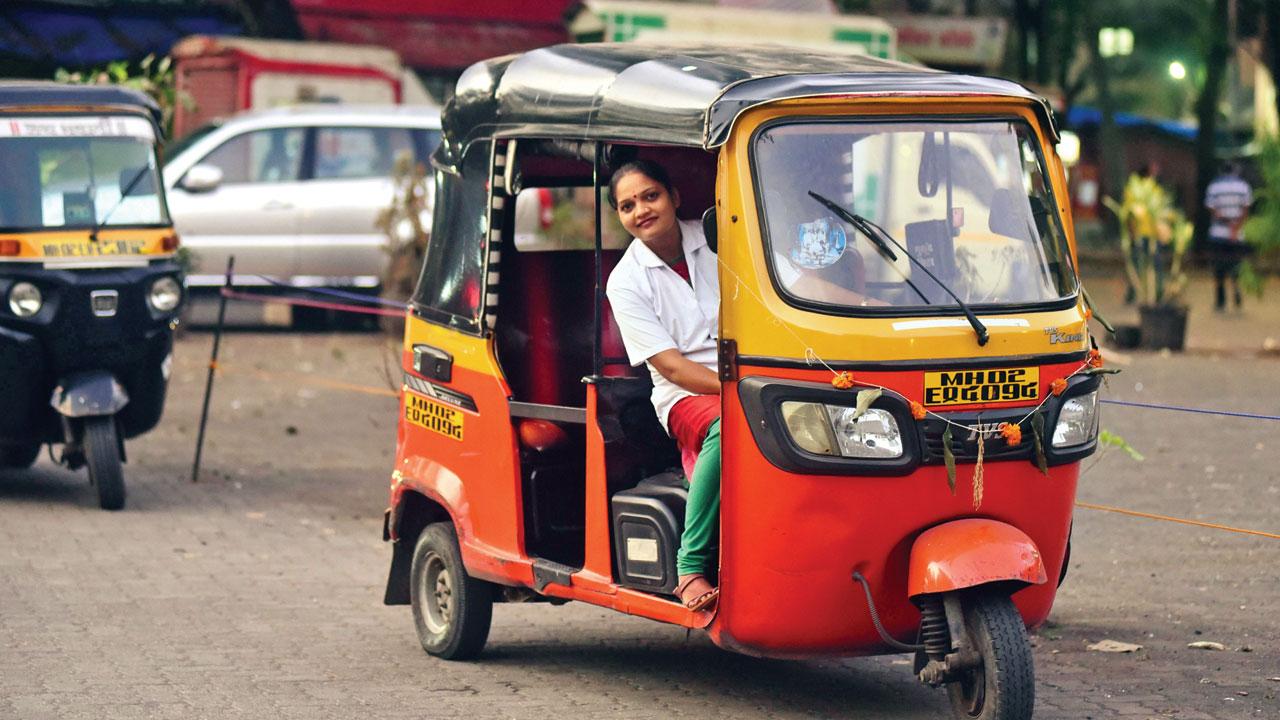
Alka Jadhav with her auto at Bandra on Tuesday. Pic/Shadab Khan
But there are other challenges. “Women drivers don’t have restrooms, not even loos. Unlike men, we just can’t stop the auto to answer nature’s calls. I am facing urinary tract infections. Now, I have to take a 3-hour break every afternoon. Many women drivers face this problem. There is a dire need to do something to help us,” she added.
Manjula Sawant, 40
Manjula Sawant has been driving an autorickshaw for the last 3 years after her husband Prashant got severe back pain due to driving. Manjula, a mother of two kids, said she has been abused multiple times by male auto drivers at stands in these years.
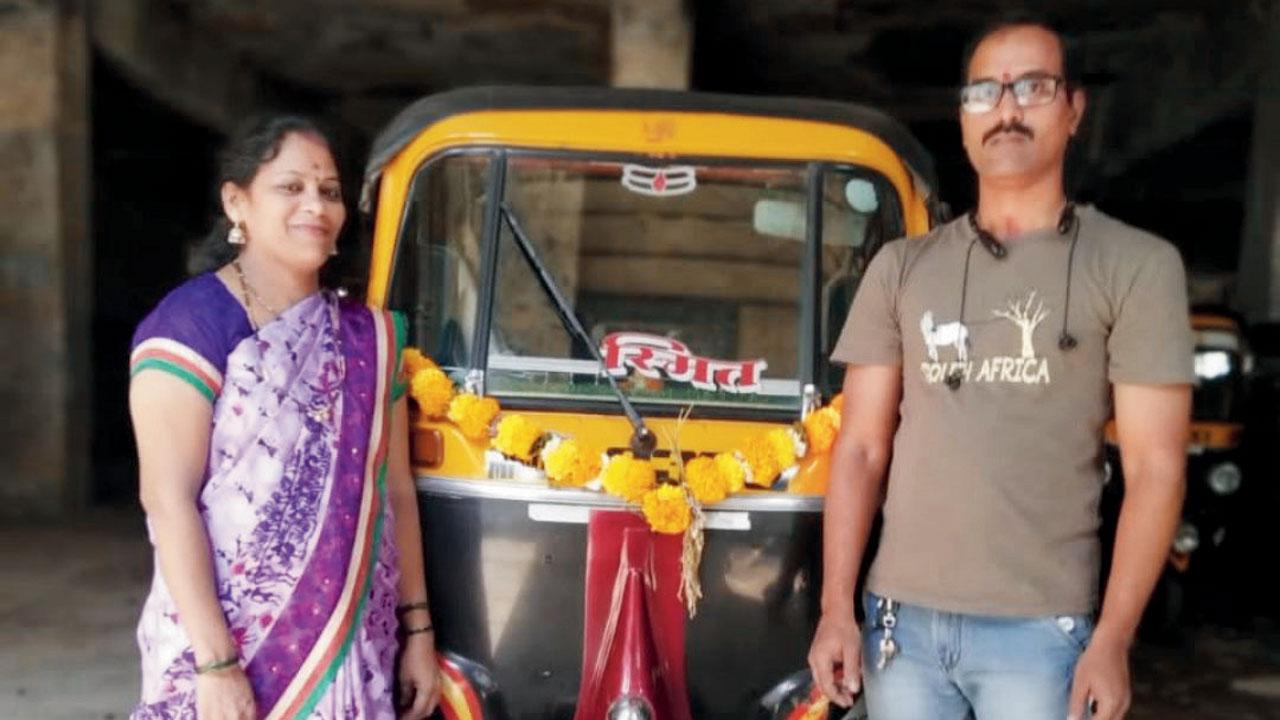
“Our income suddenly stopped three years ago. I had to find a way to pay for my children’s school fees and other expenses. I told Prashant that I would drive the auto. He said it wasn’t safe for women as one may encounter drunk passengers. For the sake of my family, I started driving the auto. Most passengers are nice. Many have given me chocolates, water bottles and extra money.”
However, Manjula said male auto drivers make life difficult. “Despite me following the queue, the male drivers break it. Many of them have abused me. I complained to the union and it stopped for a while. It’s too difficult to get into a fight with other auto drivers as we both are in the same field.”
Namrata Pandit, 35
Namrata Pandit plies at Malad, Kandivali, Borivali and a few areas of Thane. Her husband works as a ward boy and her father-in-law recently underwent a bypass. She said she faces a lot of problems at Bhandup. “At Kandivali, Borivali and Malad, auto drivers are good, but I avoid going to Bhandup. I have called the police on many occasions, but they never helped me. They always listen to the union leader and other auto drivers. One really feels alone at such times,” said Namrata, who has been driving an auto for the past two years.
Lata Tambe, 40
Kurla resident Lata Tambe said her husband is mentally challenged and she is the breadwinner of her family. She has been driving an auto for the past two years.
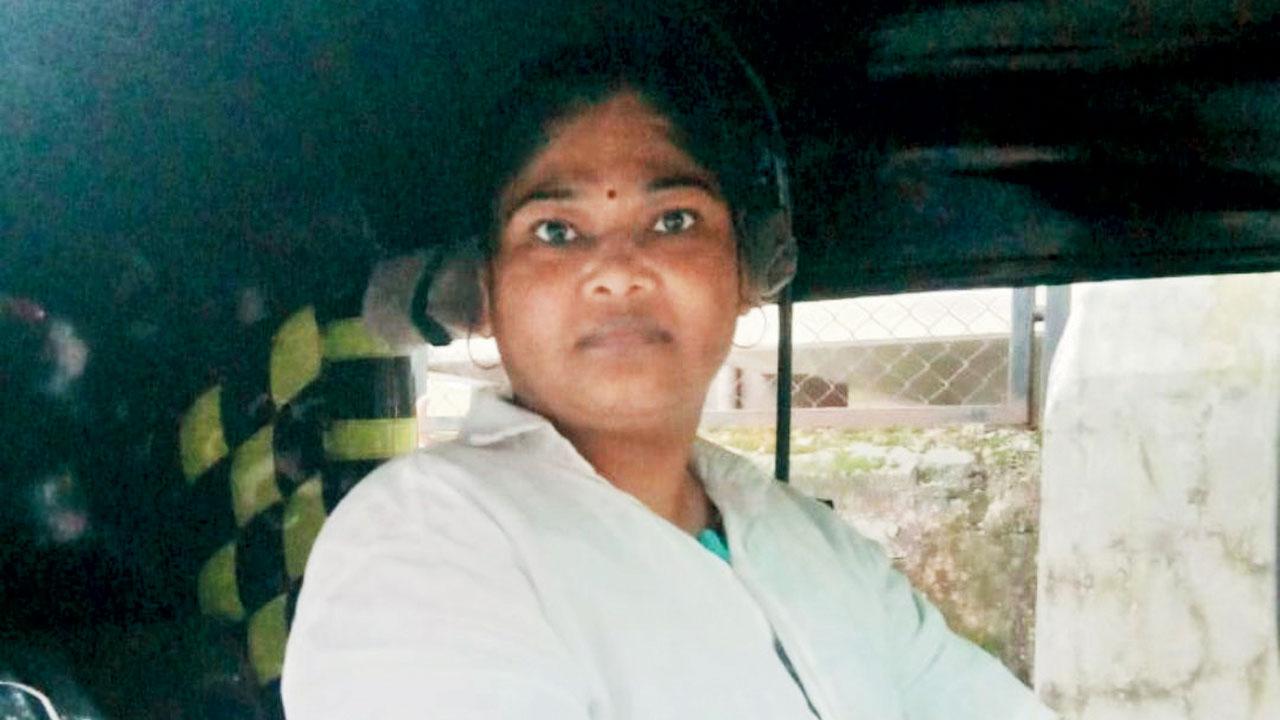
“Many male auto drivers have tried to stop me from taking my auto to the stand. I give it back to them. We have equal rights. My family depends on me and nobody can stop me from driving an auto,” she said.
Rajani Jadhav, 25
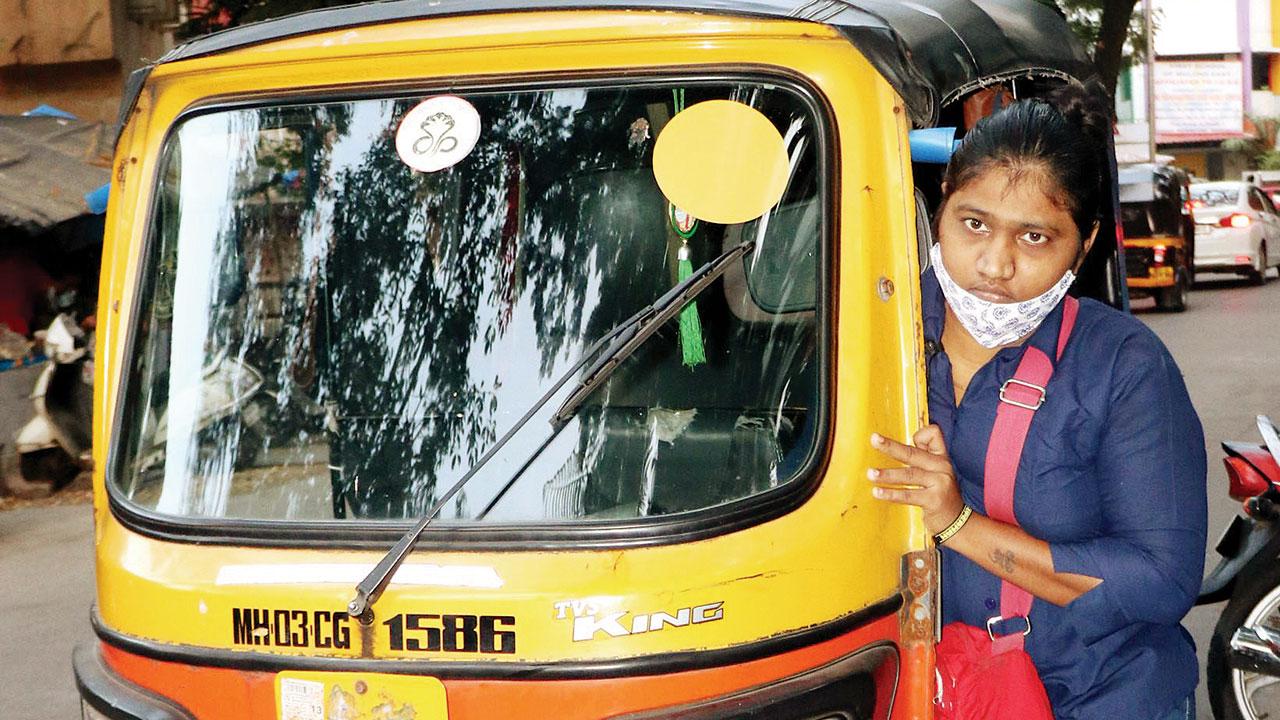
Mulund resident Rajani Jadhav has been an auto driver since 2014. She has had several run-ins with male drivers. “Earlier, I used to sell vegetables. When I started driving an auto at Mulund East, not a single male driver supported me.
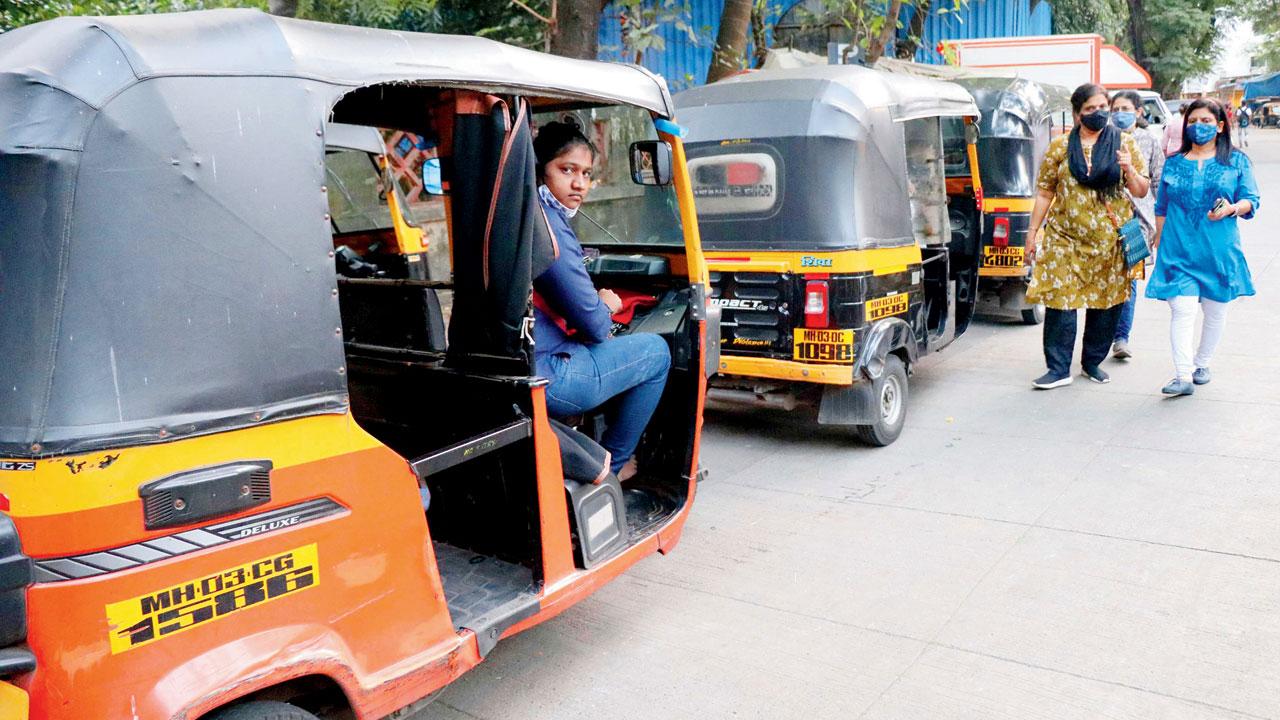
Mulund resident Rajani Jadhav has been driving an auto since 2014. Pics/Rajesh Gupta
In 2015, I had a fight with 3 auto drivers and they even plotted an attack on me. A truck hit our auto when my mother and I were going to a temple. I still have a rod in my body.” Rajani alleged that the Navghar police refused to register an FIR. “The harassment has reduced a bit now.”
Male driver’s mindset must change: Union leader
Auto union leader Shashank Rao said, “If you look at this profession, it’s not a dignified job. So when it comes to women drivers, they face challenges on multiple fronts. Driving is considered a male-dominant job and for years women are trying to break this myth. We are trying our level best to get them on an equal footing.”
Rao added, “We do come across grievances of women drivers and we definitely resolve them, but the psyche of male drivers needs to change. It’s also the duty of the government to give auto and taxi drivers some dignity through welfare schemes and facilities.”
 Subscribe today by clicking the link and stay updated with the latest news!" Click here!
Subscribe today by clicking the link and stay updated with the latest news!" Click here!








